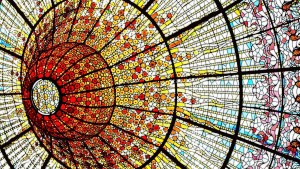Sergei Rachmaninoff is known for his prowess at the piano and stupendous symphonies. His music is notable for its expansive chords that pushed the limits of early 20th-century Romanticism. Here, however, we have a rare choral work from the great Russian composer, one that was almost lost to time.
Poor reception
In 1910, Rachmaninoff completed his Liturgy of St. John Chrysostom, one of only two major unaccompanied choral works to his credit. It was first performed in Moscow, in 1910, but it was not received well. Russian Orthodox ecclesiastical authorities objected to the modern spirit of the piece and refused to sanction it for liturgical use.
Unfortunately Rachmaninoff did not take criticism well. In one instance, when his Symphony #1 received lackluster reviews, he fell into a four-year depression, during which time he could not compose. In light of this, it is understandable how the Orthodox rejection of his beautiful liturgy led him to cease all promotion of the work.
“Rediscovering Rachmaninoff”
This wonderful liturgical setting may have been lost if not for a PBS documentary. Titled “Rediscovering Rachmaninoff,” the production followed the process of piecing the score back together from surviving choral books found in a U.S. Orthodox monastery. Today, the Liturgy of St. John Chrysostom is a celebrated work of sacred music.
Rachmaninoff himself favored the piece and expressed the joy he took in composing it. Of the work, he said:
“I have been thinking about the Liturgy for a long time and for a long time I strove to write it. I started to work on it somehow by chance and then suddenly became fascinated with it. And then I finished it very quickly. Not for a long time have I written anything with such pleasure.”
The recording, featured above, is just one passage from the larger liturgical work.

